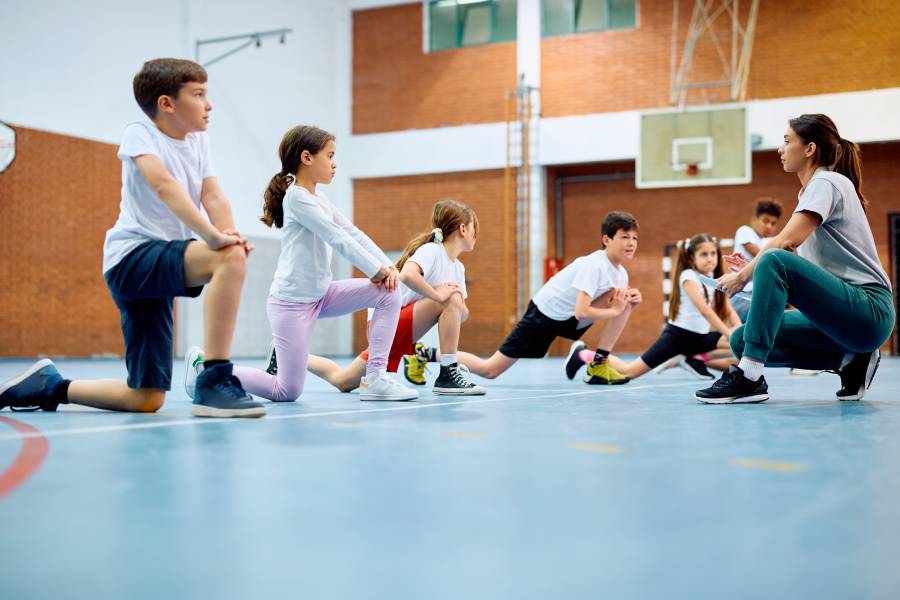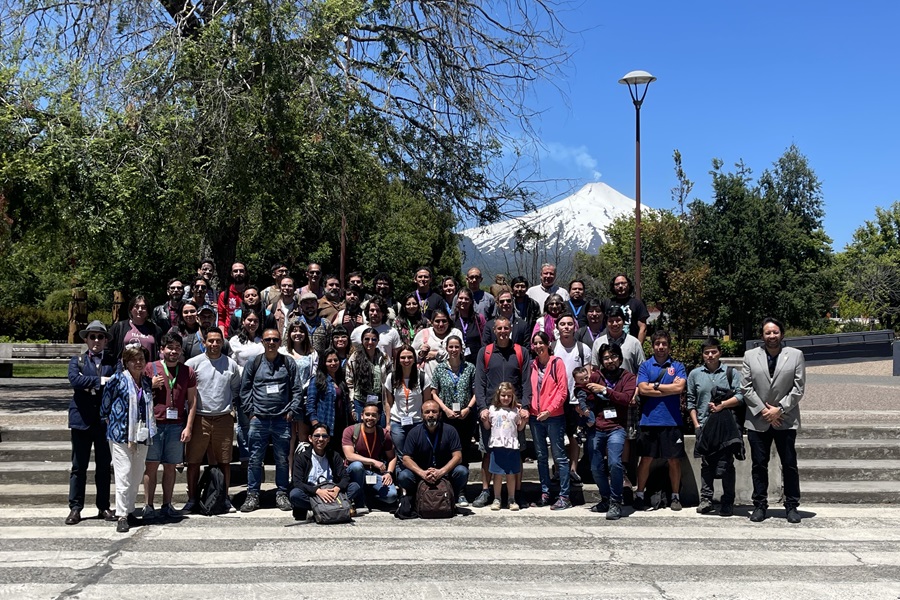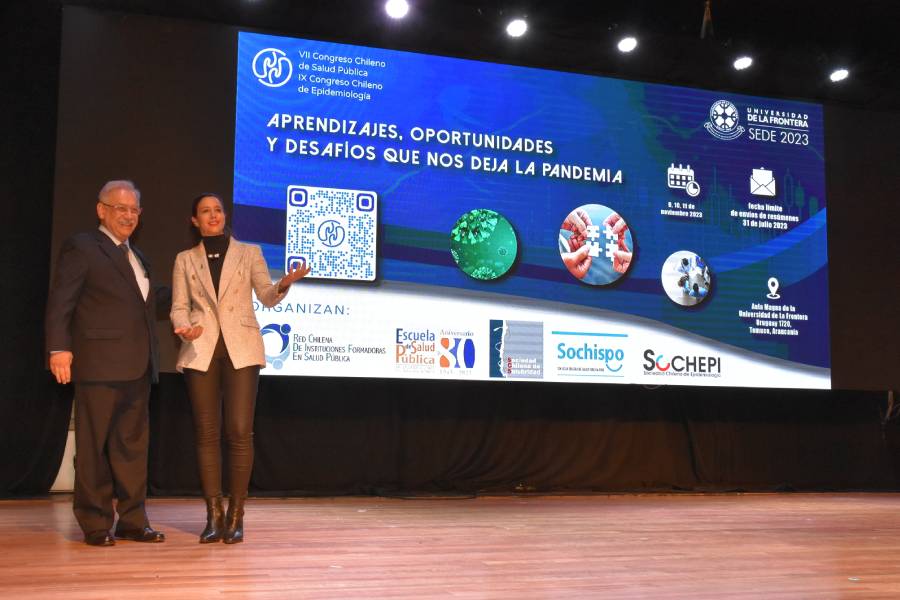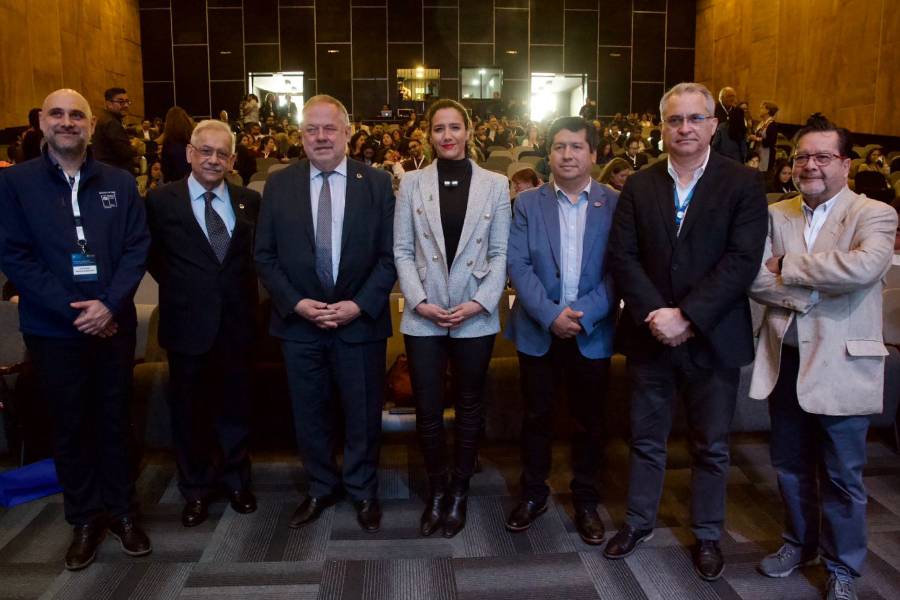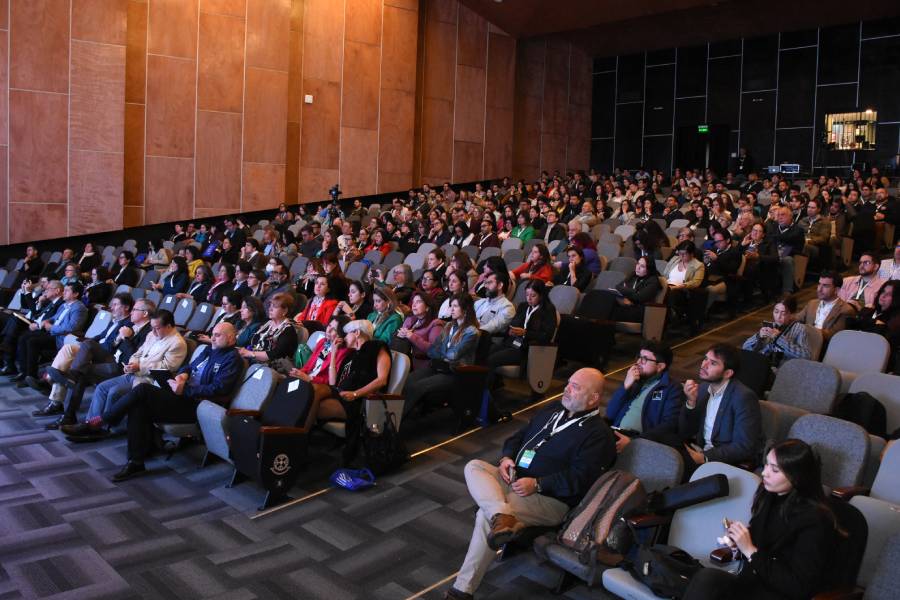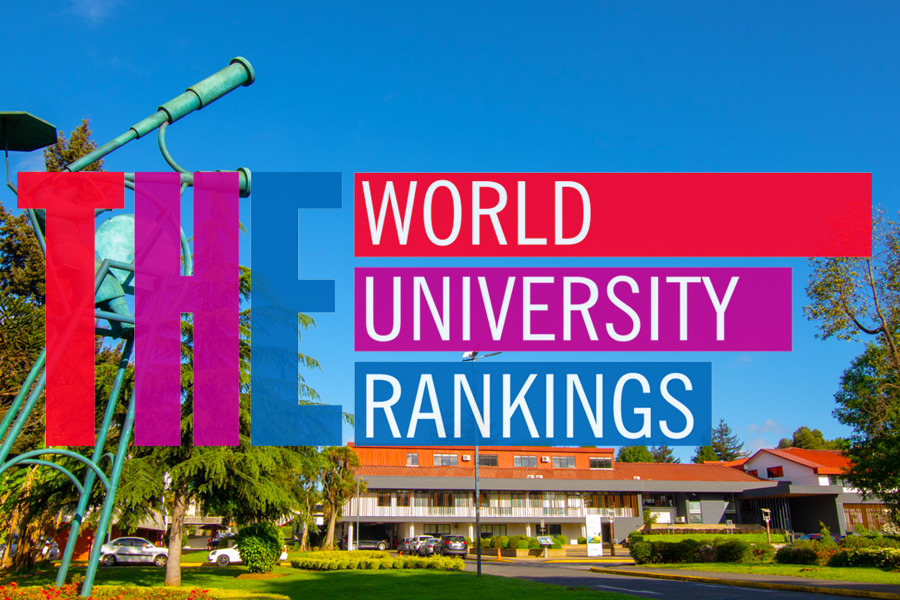|
The researchers of the Physical Literacy Research Centre (CIAM) of the Universidad de La Frontera (UFRO) analysed the active behaviour of children in the La Araucanía Region in order to understand the relationship between motor competence, motivation and the levels of physical activity in schoolchildren. |
Motor competence describes the ability to execute fundamental motor skills and is one of the skills that we should promote during childhood to ensure the children’s comprehensive development. A high motor competence allows the child to ride a bicycle, run, jump the rope, and participate in other games and activities. However, something so simple can turn into a problem for those who do not develop these skills, which leads to anxiety, frustrations and a lack of motivation to participate in physical activity. The consequence can be problems such as the development of an inactive lifestyle. According to the World Health Organization (WHO) and its reports on physical activity and sedentary behaviour (WHO 2021), children and adolescents should carry out at least 60 minutes of physical activity every day of the week, especially activities of moderate to vigorous intensity. The study “Motor competence, motivation and enjoyment in physical education to profile children in relation to physical activity behaviours”, carried out by the Physical Literacy Research Centre (CIAM) of Universidad de La Frontera (UFRO) in collaboration with researchers from Germany, Switzerland and Spain, and published by the prestigious journal “Physical Education and Sport Pedagogy”, shows that these WHO recommendations are not being met, what, in addition to the low levels of motor competence, might have multiple health consequences both in adolescents and adults. THE STUDY The study evaluated 730 schoolchildren from 5th and 6th grade of primary school in the La Araucanía Region, Chile, and the results show that 78% of the children have low levels of motor competence and only a few meet the physical activity recommendations. In addition, those schoolchildren with a high perceived motor competence and a high motivation and enjoyment of physical activity class were more active and presented a lower Body Mass Index. That shows the importance of affective and psychological factors for the promotion of an active lifestyle. According to Dr. Jaime Cárcamo, the director of CIAM UFRO, the study shows that the level of motor competence and physical activity of the schoolchildren allows understanding how the perception of competence and motivation could be determining factors for the development of motor competence and the regular practice of physical activity in schoolchildren. “This relation is essential, not only for physical education class at school but also for the promotion of physical activity in our society. There are highly motivated children, but their enthusiasm contrasts with their performance in tasks such as bouncing a tennis ball against a wall and catching it, or something as common as jumping the rope, an exercise that more than 80% of the children in our study were not able to carry out,” Dr. Cárcamo explained. The academic Dr. Isaac Estevan of the University of Valencia, Spain, who is also one of the co-authors of the study, indicated that “the impact of this research is not limited to the academic field, since its results have important implications for physical education class and the promotion of an active and healthy lifestyle. The results also may affect our view on motivation in the field of sports and physical activity in general. Therefore, we hope that this study will be useful to physical education teachers and the decision-makers when it comes to policies in this field”. NEED FOR ACTION In the analysis of the study, the researchers found that although the majority of the children presented low levels of motor competence, there is a group with high levels of motivation and enjoyment regarding physical education class. We could use that as an opportunity to improve their motor competence through pedagogical strategies and to consolidate their motivation for physical activity. The researchers of the Physical Literacy Research Centre (CIAM) also recommend that the parents promote their children’s motor competence as much as possible. That could be through actions such as playing with them, taking them to the playgrounds, and reducing screen time (in front of the television, tablet, or mobile phone). Currently, CIAM is actively training physical education teachers and the idea is to implement a platform in the future, where teachers and parents can easily evaluate the motor competence of their children or students, as well as to provide recommendations to promote motor competence and the practice of physical activity. In addition, CIAM develops continuing research projects to better understand the issue and to contribute to this important field of knowledge. The publication of this study in the journal “Physical Education and Sport Pedagogy” is an important achievement for CIAM UFRO, since the Q1 journal is considered one of the most important ones in the field of physical education. That also underlines the relevance of this study for the international scientific community. The authors hope that this work will be the starting point for future research that contributes to the improvement of physical education classes and the promotion of physical literacy in Chile.
Written and translated by: UFRO Communications Office
|
|
From December 10 to 15, the Pucón Campus of Universidad de La Frontera receives researchers and students from multiple disciplines related to geometry for this international event organized by the Research Center Geometry at the Frontier. |
The international mathematical community gets together at the 8th Iberoamerican Congress on Geometry, which takes place at Universidad de La Frontera (UFRO) in Pucón, Chile, this year, where national and international researchers and students meet from December 10 to 15, to share their knowledge on the issues and progress in this mathematical discipline. The program of this international congress, organized by UFROs Research Center Geometry at the Frontier, includes eight plenary talks and four special session talks on Higher Dimensional Algebraic Geometry, Dynamical Systems, Algebraic Surfaces and Riemann Surfaces, where the speakers will present the recent advances in geometry. All speakers are outstanding national and international experts in the study of geometry. They carry out significant work, combining their efforts and capabilities to strengthen and position the Iberoamerican scientific community as an important reference in the field of geometry. It is worth mentioning that the first Iberoamerican Congress on Geometry took place in Olmué, Chile, in 1998. After that, it took place in Guanajuato, Mexico, in 2001; in Salamanca, Spain, in 2004; in Ouro Preto, Brazil, in 2007; back in Pucón, Chile, in 2010; in New York, USA, in 2014; and in Valladolid, Spain, in 2018. This year, the congress takes place in Pucón, Chile, again, as a promising encounter of knowledge exchange between mathematicians from Iberoamerica and other parts of the world. CLICK HERE FOR MORE INFORMATION ON THE CONGRESS
Written by: Daphne Bormann Parada, Faculty of Engineering and Science |
|
Academics, students, health professionals and authorities came together at Universidad de La Frontera under the motto “Knowledge, opportunities and challenges left by the pandemic”. |
More than 500 health professionals met at the seventh Congress on Public Health and the ninth Congress on Epidemiology in the Aula Magna of Universidad de La Frontera (UFRO) to address the main health problems after the pandemic. Academics, students, health professionals and authorities came together under the motto “Knowledge, opportunities and challenges left by the pandemic” for the congress, which was inaugurated by Dr. Sergio Muñoz Navarro, the chair of the organising committee. “This is the Congress on Public Health that brought the most presented papers together, with 374 research papers, which makes us very happy and anxious. We are sure that it will be a complete success,” said Dr. Muñoz, academic of the Department of Public Health and the Centre of Training, Research and Management for Evidence-based Health (CIGES) of UFRO. The rector of the university, Dr. Eduardo Hebel Weiss, acknowledged the work of the health teams during the pandemic and emphasized the importance of participating together with other academics and health professionals in activities that address the new issues that have emerged after the COVID-19 pandemic. “This is the first time after the pandemic that we managed to bring together so many epidemiologists and health specialists to discuss the knowledge, opportunities and challenges the pandemic left us. This opportunity for dialogue should focus on everything that has been done to work towards the future,” Dr. Hebel explained. The keynote speaker at the event was Andrea Albagli Iruretagoyena, the Deputy Secretary of Public Health, who presented “Priorities of Government Management in Health”, where she addressed the government’s aim to reduce the drastic impacts of the pandemic, as well as the priorities of the ministry to work on health reforms to reduce delays, improve mental health care, reduce childhood obesity and increase the tobacco control measures. “COVID-19 is no longer a global health emergency, but that does not mean that it is no longer a challenge. The main goal of our agenda is to diminish the post-pandemic effects. The challenge for those who had to face the pandemic was to make a series of very difficult decisions, and now, we have to face a series of changes to diminish the post-pandemic effects,” Andrea Albagli explained. The congress took place from November 9 to November 11, with the symposia on “Civil society participation in pandemic control: epidemiology for decision-making”, “Challenges and opportunities of artificial intelligence applied to health” and “The tobacco epidemic in times of COVID-19: strategic, political and citizen analysis”; the presentation of research papers; and the closing conference by Dr. Ricardo Rozzi on “The interconnection between public health and protected areas: the ethics of cohabitation”, among others. Written by: Fabian Aguirre Silva, Faculty of Medicine |
|
|
The Washington Post published an article about a study led by Gabriel Nasri Marzuca-Nassr, a researcher and associate professor at Universidad de La Frontera (UFRO), about the importance of resistance exercise for older people (in their 60s, 70s and beyond) to gain strength and muscle mass, and to improve their mobility.
Source: The Washington Post
|
|
Universidad de La Frontera is ranked in seven subjects of the prestigious international ranking and for the first time in the subject engineering. |
Times Higher Education (THE) released the results of the Rankings by Subject 2024, where Universidad de La Frontera (UFRO) is ranked in 7 out of 11 subjects, one more than in the previous version, entering the ranking for the subject Engineering for the first time. Clinical and health, life sciences, physical sciences, psychology, social sciences, education, and engineering are the subjects in which UFRO is ranked in this year’s version, which uses rigorous performance indicators that have been recalibrated to suit the individual fields. THE SUBJECTS The subject clinical & health ranks the best universities in the fields of medicine and dentistry, among others. This year, the ranking considered 1,059 universities in this subject, among which are five Chilean state universities, with Universidad de Chile and Universidad de La Frontera being the best two, in the 601-800 band. The subject life sciences highlights the leading universities in the fields of agriculture and forestry, biological sciences, veterinary science, and sport science, with 1,059 universities ranked in this subject, among which are six Chilean state universities, with Universidad de La Frontera being the best, in the 601-800 band. PHYSICAL SCIENCES AND SOCIAL SCIENCES The rankings by subject use the same performance indicators as the Times Higher Education World University Rankings 2024, although the methodology has been recalibrated to suit the individual fields. The ranking for physical sciences highlights the fields of mathematics and statistics, physics and astronomy, chemistry, geology, environmental sciences, and earth and marine sciences. This year, this category considered 1,370 universities, with seven Chilean state universities, where UFRO remains in the 1001+ band. The subject social sciences highlights the disciplines communication and media studies, politics and international studies, sociology and geography. This year, it includes 997 universities, with five Chilean state universities, among which UFRO is ranked in the 801+ band. PSYCHOLOGY AND EDUCATION The subject psychology ranks the leading universities in educational, sport, business, animal and clinical psychology, with UFRO in the 601+ band among 621 universities, including three Chilean state universities. The subject education considered 703 universities, of which six are Chilean state universities, with UFRO as the second best in the 601+ band. This subject ranking assesses the leading universities in the disciplines of education, teacher training, and academic studies in education. ENGINEERING This is the first year that UFRO is ranked in this subject, which highlights the best universities in the disciplines of general engineering, electrical and electronic engineering, mechanical and aerospace engineering, civil engineering, and chemical engineering. Out of 1,374 universities, UFRO is ranked in the 1001+ band, among other Chilean state universities.
Written and translated by: UFRO Communications Office
|





